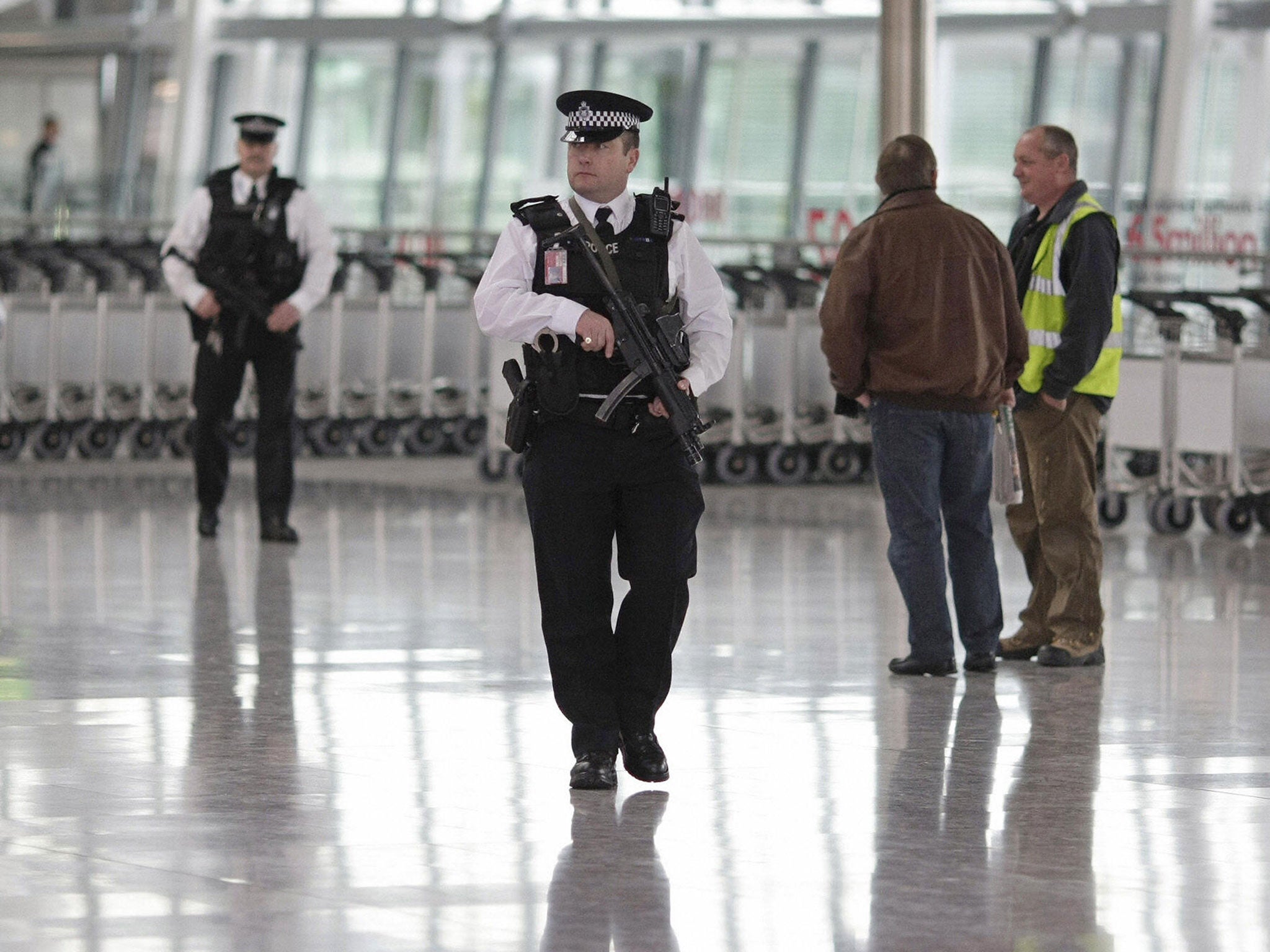Brexit means Britain's police have work cut out in tackling Europe-wide crime, says NCA chief
Director general of the National Crime Agency, Lynne Owens, says the exchange of information with the rest of Europe 'must continue'

Britain’s most senior operational police officers have expressed concern over Brexit and said it will take years of “onerous” work if the UK is to retain the same level of cooperation with Europe that it needs to combat international organised crime, human trafficking and terrorism.
Lynne Owens, director general of the National Crime Agency (NCA), Britain’s equivalent of the FBI, said that her European crime-fighting colleagues had been shocked by June’s Brexit vote, but were keen to continue cooperating.
“In its bluntest form,” she said, “We must be able to continue to exchange information. We must be able to understand the movement of criminals and criminal behaviour.”
Her deputy director general David Armond is now chairing a group of senior UK crime and anti-terrorism enforcement officials to tell the Conservative politicians negotiating Brexit what kind of Europe-wide operational cooperation needs to be retained.
Mr Armond said: “Obviously, we are concerned. To protect the public in our country we need the ability to share intelligence fast-time, to exchange information and to cooperate operationally.
“It’s going to be a lot of work over the next few years to make sure we are in the right place. It’s going to be sleeves rolled up, hard yards to get to that position.”
He added that under the current, pre-Article 50 provisions for European cooperation in crime fighting, “there are certain mechanisms that exist within Europe at the moment that make some of that fairly straightforward”.
One particular concern about Brexit, Mr Armond said, was the European Arrest Warrant which since 2004 has made it easier to extradite criminals fleeing UK justice in the EU, helping to ensure fewer British gangsters seek sanctuary in places such as the Costa del Sol, once nicknamed the Costa del Crime.
Mr Armond said: “Things like the European Arrest Warrant are going to be tricky. We can’t stay within that. We have got to negotiate a series of new treaties with overseas territories about extradition.” The issue of Europol membership was, he added, was “interesting”.
What experts have said about Brexit
Show all 11And, Mr Armond admitted, the NCA was also in the midst of working with the UK Home Office to lobby for a common set of EU standards over firearms deactivation – a measure whose necessity was proved by the way terrorists involved in the Charlie Hebdo and November 2015 attacks in Paris used deactivated weapons that were made live again with relative ease.
Achieving common standards and getting other EU nations to move toward the UK’s stricter firearms deactivation requirements, he admitted, “will of course be more difficult outside the EU than in”.
He insisted, however, that the French attacks had shown the importance of the issue and thus ensured that “policy makers are much closer to reaching a conclusion”.
While acknowledging the difficulties, Mr Armond was careful to qualify his comments by refusing to accept that Britain would lose crime-fighting capacity post-Brexit. He insisted that arrangements could still be made to ensure the UK law enforcement agencies remained involved in Europe-wide cooperation.
He said: “It is not our job to wave bleeding stumps and say the world is going to end. Brexit is not a disaster. It is a complex set of arrangements, but I am confident we will get there. It will be onerous, but so is the whole issue of extracting the UK from the EU – that applies to the whole business of government.”
Until Brexit happens, he said, the UK remains a full member of Europol and “working full tilt”. The UK, he said, currently has one of the largest liaison bureaux in The Hague working with the EU employees who form Europol’s inner core. This allows the UK “to run fast-time operations with any group of member states”.
Post-Brexit, he said, the UK might be able to become an “operational cooperation only” nation, like countries within the European Economic Area. This would ensure Britian could still join international operations, although intelligence sharing with Europol would then have to be done indirectly, via liaison officials. The UK would also remain a member of Interpol.
In comments that may raise eyebrows in other EU countries, Mr Armond also suggested it might be possible for the UK’s Brexit negotiators to suggest staying inside the European Arrest Warrant system but outside the EU.
“There is no example of a nation that is not part of the EU being involved in the European Arrest Warrant set-up,” Mr Armond said, “We could theoretically, if the Government decided it was a sensible approach, start with saying ‘We are so interlinked in relation to our security, we would like to continue to be members of that particular aspect of the EU’. Then out of that negotiation will come a sensible set of arrangements.”
Pointing to the success of Briton Rob Wainwright, who took over as Europol director in 2009, he said: “The Europeans need us as much as we need them – probably more so. Europol under UK management has become much stronger. I can’t envisage a situation where we can’t continue to do business with Europe.
“And of course we already work with international partners all round the world. We are very experienced in doing this, sometimes with very difficult countries.”
Subscribe to Independent Premium to bookmark this article
Want to bookmark your favourite articles and stories to read or reference later? Start your Independent Premium subscription today.
